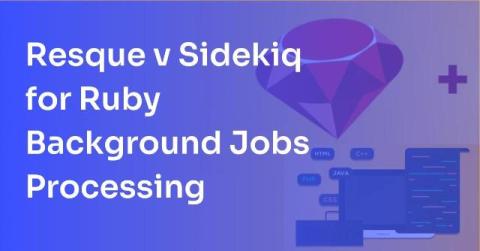Systems | Development | Analytics | API | Testing
Ruby
Scaling Ruby on Rails Using Containerization and Orchestration
Five Things to Avoid in Ruby
Debugging in Ruby with pry-byebug
Handling Exceptions in Grape for Ruby
Behaviour Driven Development in Ruby with RSpec
Keep your Ruby Code Maintainable with Draper
Design patterns can help to simplify your codebase so you don't need to reinvent the wheel. In this post, we'll go into how to use Draper. But first, we will start with an overview of the decorator pattern and how to use it with Ruby's standard library. Let's get started!
Stream Updates to Your Users with LiteCable for Ruby on Rails
So far in this series, we have been exploring the capabilities of SQLite for classic HTTP request/response type usage. In this post, we will push the boundary further by also using SQLite as a Pub/Sub adapter for ActionCable, i.e., WebSockets. This is no small feat: WebSocket adapters need to handle thousands of concurrent connections performantly.
Keep Your Ruby Code Maintainable with Money-Rails
When working with money in an application, ensuring everything is accounted for is important. In this post, we will explore some common methods and best practices of handling money in your Ruby app, and see how you can use money-rails to write maintainable money-handling code. Let's get started!
Shaping the Future of Ruby and Kafka Together with rdkafka-ruby
Hello there! My name is Maciej Mensfeld, and some of you might recognize me from my involvement in RubyGems Security, OSS commitments, or perhaps from Karafka: a multi-threaded, efficient Kafka processing framework tailored for Ruby and Rails. While I generally pen my thoughts on my personal blog, today's post is unique. This article results from a collaborative effort with the brilliant people over at AppSignal. To set the record straight, I don't work for AppSignal.











